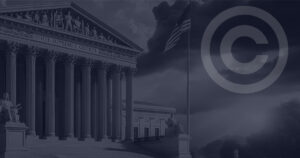 Vicarious and contributory liability are terms well-known to every tort lawyer and law student. They should also be familiar to business owners and managers.
Vicarious and contributory liability are terms well-known to every tort lawyer and law student. They should also be familiar to business owners and managers.
The legal theories of vicarious and contributory liability are well-established in copyright law and are employed to impose liability for another’s direct infringement where a third party, such as a distributor or landlord, contributed to the infringement by encouraging or providing the means to infringe, or where the party had the means to stop the infringement and benefited financially from it.

 Earlier this month the U.S. Supreme Court answered the question of when a copyright plaintiff must file an infringement claim or be barred from suing by statute of limitations. The case was Warner Chappell v. Nealy Music, Inc.
Earlier this month the U.S. Supreme Court answered the question of when a copyright plaintiff must file an infringement claim or be barred from suing by statute of limitations. The case was Warner Chappell v. Nealy Music, Inc.